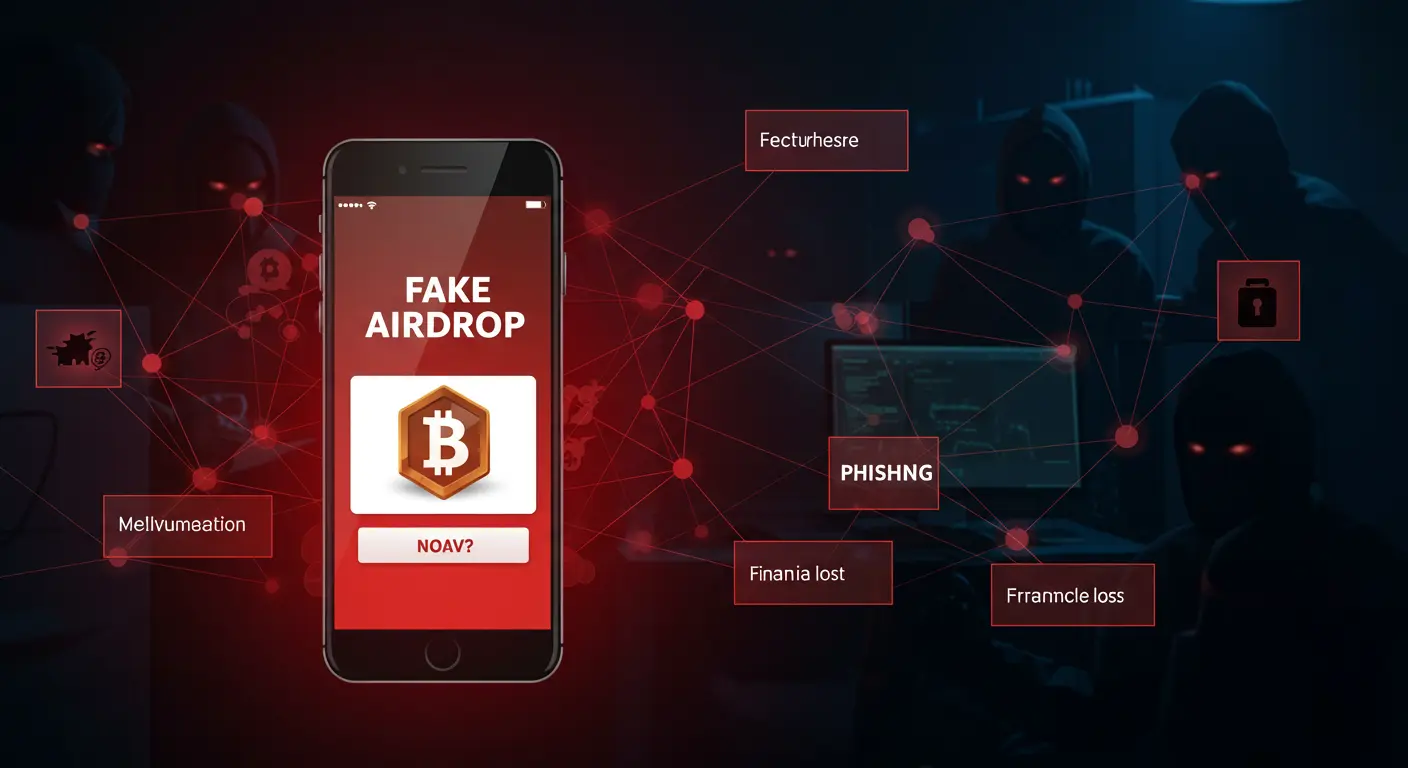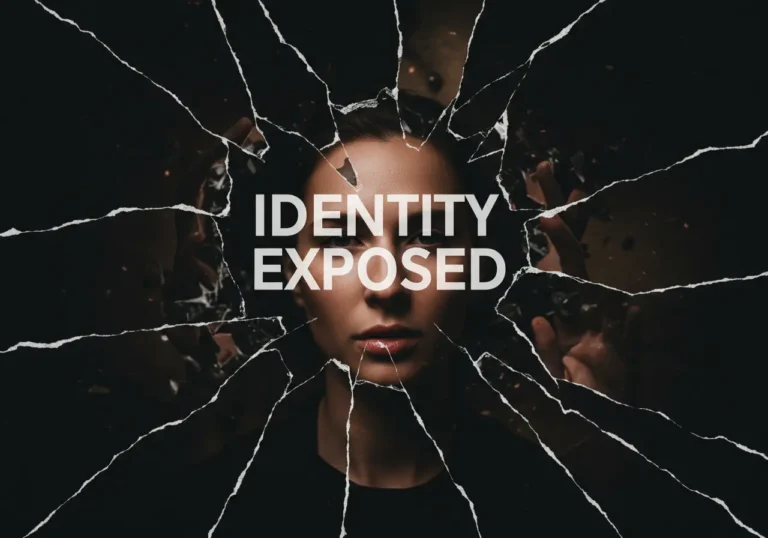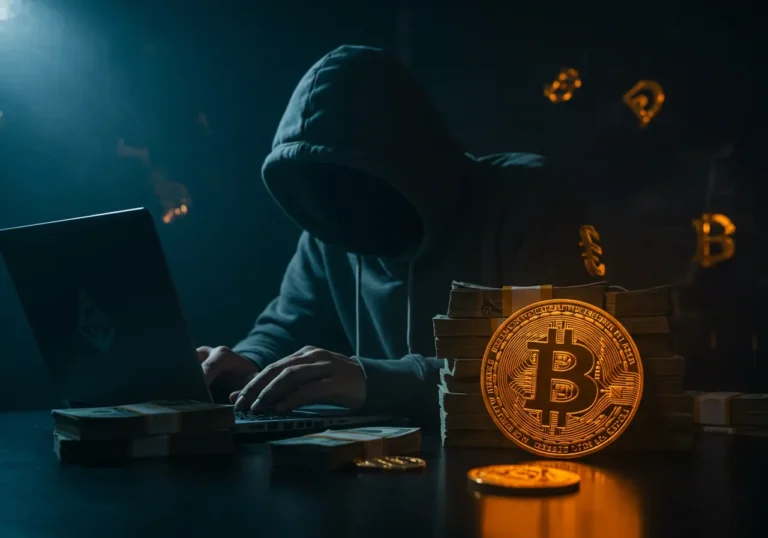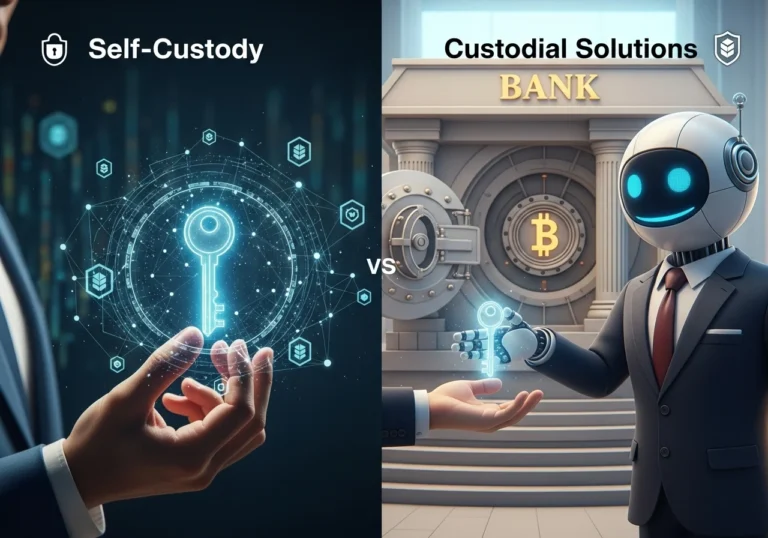Airdrop and Giveaway Scams: The Hidden Dangers Behind Free Crypto Offers
What Are These Scams, Really?
Imagine someone flashing what looks like a winning lottery ticket and saying, “It’s all yours—just hand over your wallet for a moment.” Sounds sketchy, right? That’s exactly how these crypto scams work. They bait you with promises of payouts, refunds, or rewards, then use fake websites or forms to trick you into handing over access to your funds. You think you’re claiming something valuable—but you’re really giving thieves the keys to your digital wallet.
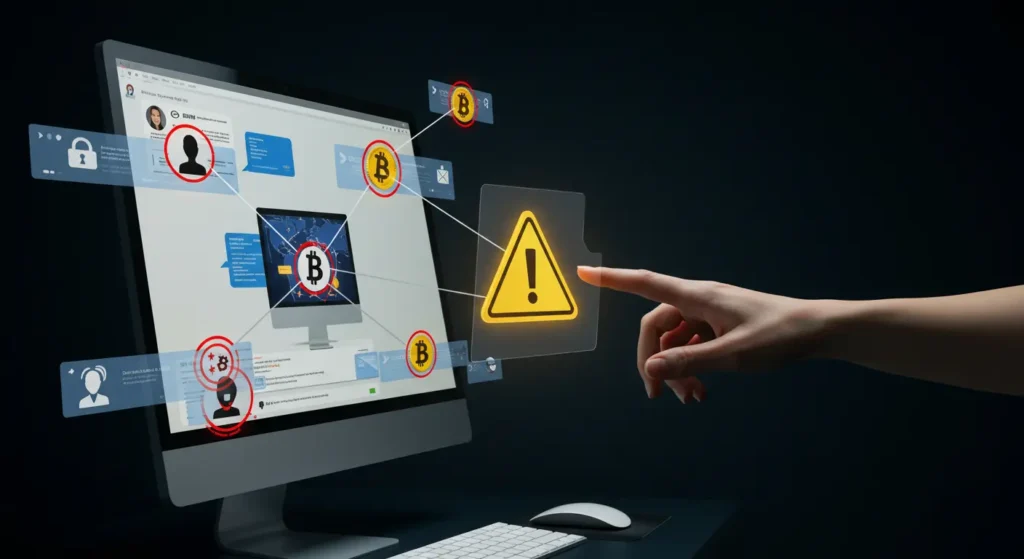
- Airdrops: Normally, a real airdrop is when a new crypto project sends a little bit of its free tokens to lots of wallets, kind of like handing out free samples at the grocery store. It’s a way to get people interested. Scammers twist this. They create fake airdrop schemes. They’ll message you, email you, or post flashy ads claiming you’ve been specially selected! But to get your “free” crypto? Oh, you just need to “pay a small gas fee,” or “verify your wallet” by entering your secret recovery phrase (those 12 or 24 words – NEVER, EVER share these!), or send them some crypto first. Spoiler: You’ll never see anything in return.
- Giveaways: These are the classic “Double Your Crypto!” or “Celebrity Mega Giveaway!” scams. They promise insane returns if you just send a little crypto to a specific address first. “Send 0.1 ETH, get 1 ETH back!” Sounds amazing, doesn’t it? But it’s pure fantasy. These are fraudulent giveaway promotions. The address you send to belongs entirely to the scammer. Once your crypto lands there, it’s gone. Buh-bye.
Why Do These Tricks Work? (And How to Spot ‘Em)
Honestly? Because “free” is a powerful word. We all like getting something for nothing! Scammers are experts at playing on that excitement and our fear of missing out (FOMO). “Only 10 spots left!” “Claim within 5 minutes!” They create a false sense of urgency to make you panic and click before you think.
They also love to impersonate. That giveaway post might look exactly like it’s from Coinbase, or Binance, or Elon Musk himself! They copy logos, steal profile pictures, even make fake websites that look almost real. But there are always cracks if you look closely. These are the big warning signs of airdrop scams:
- “Send Crypto to Get Crypto”: This is the #1 rule. Legit free stuff is FREE. Real airdrops land in your wallet automatically. Real giveaways don’t make you pay them first. If they ask for any crypto upfront, run for the hills. It’s a scam. Full stop.
- Asking for Your Secret Keys: Your wallet’s secret recovery phrase or private key is like the master key to your whole crypto vault. Would you hand your house keys to a stranger promising a free TV? No way! Legitimate companies never, ever ask for this. If they do, it’s the biggest red flag waving right in your face. This is one of the most common tactics used by scammers.
- Way Too Good to Be True: “Win $100,000 in Bitcoin!” from an account created yesterday? Or “Guaranteed double your money!”? Come on. If it sounds like winning the lottery without buying a ticket, it’s almost certainly fake. Trust your gut here.
- Pressure Cooker Tactics: “HURRY! CLAIM NOW OR LOSE IT!” Real projects don’t operate like this. They give you time. Scammers want you to act fast so you don’t have time to question it.
- Sloppy Stuff: Typos, weird grammar, blurry logos, or slightly-off website addresses (like “Binannce.com” instead of “Binance.com”). Scammers often make mistakes. Pay attention to the little things.
So, How Do You Actually Dodge These Bullets? (Protecting Yourself)
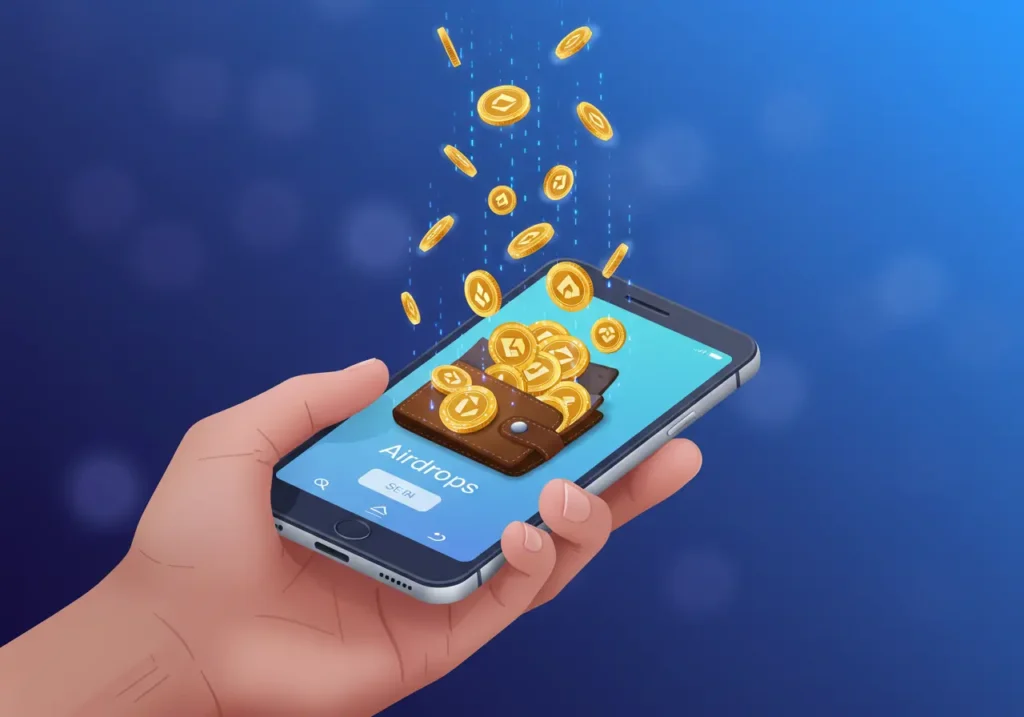
Alright, let’s get practical. Protecting yourself from giveaway fraud isn’t about being a tech genius; it’s about being cautious and double-checking. Here’s how:
- Slow Your Roll: Seriously, just pause. That urgent message can wait 5 minutes while you think. Ask yourself: “Does this make any sense?” “Would Elon Musk really DM me personally?” Breathe. Scammers hate a slow, thoughtful person.
- Verify Like a Detective: See a tweet about a Tesla crypto giveaway? Don’t click any links in that tweet! Go directly to Tesla’s official Twitter account or website. Type the URL yourself. Is the real company actually running this? 99.9% of the time, the answer is no. Check official sources every single time.
- Guard Those Secrets: Your wallet’s recovery phrase is more sacred than your grandma’s secret cookie recipe. Write it down on paper (not online!), stash it somewhere ultra-safe, and never, ever type it into a website or share it with anyone who contacts you “offering” help or free crypto. This is crucial for how to avoid crypto scams.
- Use the Buddy System (Online): Stumbled on an airdrop offer? Feeling unsure? Jump onto a trusted forum like Reddit’s r/CryptoCurrency (be mindful, scammers lurk there too!) or ask in a legit crypto community. Chances are, someone else has seen it and can shout “SCAM!” if it smells fishy. Seeing examples of recent airdrop scams discussed can be eye-opening.
- Check the Blockchain: If you’re a bit more techy, you can use sites like Etherscan or BscScan. Real airdrops will show transactions happening. If something claims to be a massive giveaway but you see zero transactions to the address they provide… well, that tells you something.
Real Talk: It Happens All the Time
Don’t think this is rare. These scams are running constantly. Remember the fake “Elon Musk” double-your-crypto tweets? People lost millions before Twitter shut it down. Fake “Uniswap” or “MetaMask” emails promising airdrops? They steal passwords and seed phrases daily. Fake live streams on YouTube with scam links in the description? Yep, those too. These examples of recent airdrop scams prove how common and costly they are.
What If You See a Scam? (Or Worse, Fall for One?)
First, don’t engage. Don’t click links, don’t reply, don’t try to outsmart them. Just close it, block the account, delete the email.
Reporting suspicious airdrop offers helps everyone:
- On Social Media: Use the platform’s “Report” feature. Flag it as a scam or impersonation.
- Tell Your Wallet Provider: If the scam used a fake MetaMask site, for example, let the real MetaMask team know.
- Report to Authorities: In the US, report to the FTC (ReportFraud.ftc.gov). In the UK, Action Fraud. Every bit helps track these crooks.
If you did send crypto or share your phrase… it’s tough. That crypto is likely gone for good. But:
- Move Fast: If you only sent crypto but didn’t share your phrase, immediately move any remaining funds out of that wallet to a new wallet (with a brand new secret phrase!).
- Damage Control: If you did share your recovery phrase? Treat that wallet as completely compromised. Immediately move all funds out of it to a brand new wallet with a new secret phrase you generate yourself. Then, stop using the old wallet entirely.
- Learn: It stings, I know. But use it as a hard lesson. Understand exactly how they tricked you so it never happens again. Talk about it (without shame!) – warning others helps protect them.
Wrapping It Up: Keep Your Crypto Safe and Sound
Look, crypto is exciting! Real airdrops do happen sometimes, and genuine contests exist. But the real ones? They won’t pressure you. They won’t ask for your secret keys. And they absolutely, positively won’t ask you to send them crypto first.
Staying safe from crypto giveaway scams boils down to a few key things: Be skeptical of “free” offers that cost you. Guard your secrets like a dragon guards gold. Always double-check official sources. And never let FOMO override your common sense.
You’ve got the smarts to spot these fakers. Be that cautious friend who says, “Hold up, let me check that.” By knowing these common tactics used by scammers, you protect not just yourself, but your whole circle. Share this knowledge! Let’s make it harder for these thieves.
Your crypto is yours. Keep it that way.
Quick Crypto Safety Checklist:
- Free Crypto Should Be Truly Free: Never pay fees or send crypto to “claim” a prize. Real freebies just arrive.
- Your Recovery Phrase is PRIVATE: Never type it online or share it with anyone. Ever. It’s the master key!
- Pressure is a Red Flag: Legit offers don’t scream “HURRY OR MISS OUT!” Scammers do.
- Verify, Don’t Trust: Go directly to the official website or social channel. Never trust links in DMs or random ads.
- “Too Good” Usually Is: If it sounds unbelievable, it probably is. Trust that feeling.
- Got Scammed? Act Fast: Secure your funds, report it, and learn from it. Then warn others.
Crypto’s a journey. Stay curious, stay cautious, and keep your wallet locked up tight. You’ve got this. 👍
Table of Contents

Hello, I’m Edmilson Dias, founder of CoinBringer. I created this platform to guide people through the fast-moving world of cryptocurrency with clarity and safety. With years of research in blockchain and digital security, my goal is to translate complex topics into practical knowledge, offering reliable tutorials, safety insights, and guidance for both newcomers and experienced users.
Discover more from CoinBringer
Subscribe to get the latest posts sent to your email.

